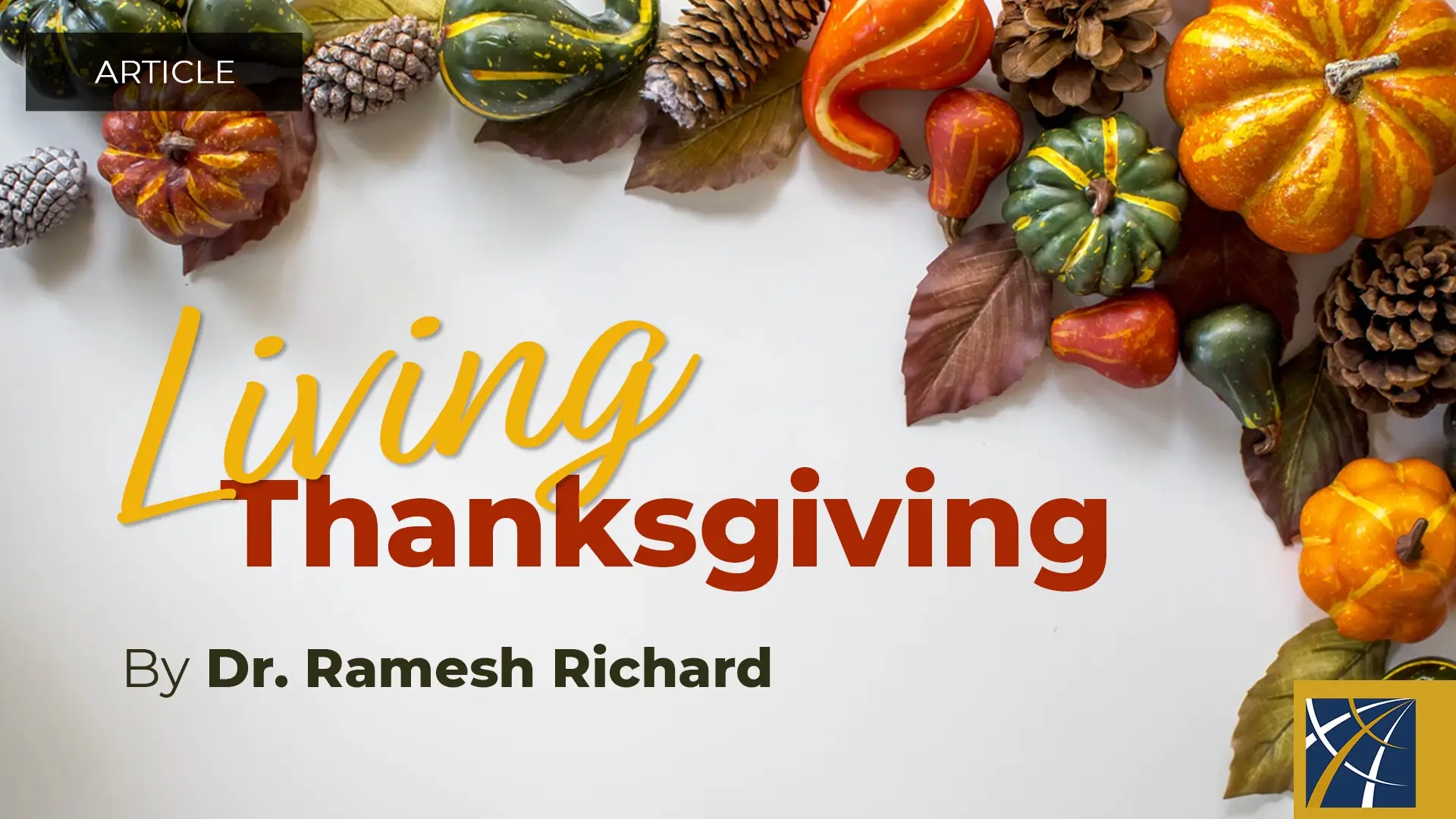July 2011
by Ramesh Richard
“I am disappointed with Psalm 37:4. In my most skeptical moments, it seems like God has to brainwash me into desiring His desires for me,” a young man in Australia said recently. He was talking about a verse that jumps out at us and appeals to our self-interests: “Delight yourself in the LORD, and He shall give you the desires of your heart.”
We look back at a hundred unmet desires and wonder what happened to this apparently unconditional promise. Let’s face it. The verse most often doesn’t seem to come true.
Should we hold on to the Psalmist’s bold declaration in the face of unrealized expectations? Or do we simply wait for God to brainwash us into desiring His desires for us?
Here’s a line of biblical thinking that has helped me trust the God of this verse without having to manipulate the verse into obligating Him to give me whatever I desire.
Desire isn’t bad
To start off, there is nothing wrong with desire per se. “God hears the desire of the humble” (Psalm 10:17). We believe the Bible rather than Buddhism which views desire itself as the cause of human suffering. That view ends up desiring to give up desiring—a self-excepting philosophical premise and an incontrovertible existential problem.
The Bible does speak against selfish and sinful desires (Gal. 5:24). Everything is wrong with wrong desires. You can’t expect God to give you what He has forbidden, for then you will break the command to not covet. Psalm 37:4 is not a blanket promise for anything your deceptive and deceitful heart may desire. Indeed, if you meet the condition of delighting in the Lord, you wouldn’t want what the Lord forbids.
Our Deep Desires Change
If I were to disclose my heart’s desires in my twenties, you’d find them to be hollow and shallow, superficial and weightless, immature and hilarious. Some of my desires were downright unholy, carnal, even too easy to achieve. I didn’t need God to give them to me; I could gain some of them myself.
As I become older (and older is not the same as mature!), I am realizing that once the intensity of desire passes, I sometimes find I no longer want what I was asking for—a sure sign that it wasn’t truly a deepest desire of my heart!
I am thankful then, that God did not give me the temporary desires of my immature, covetous, or lust-filled heart, though I was quite certain they were good for me at that time.
That’s the problem of the human condition: our desires are short-term and short-sighted, and we do not fully understand the content or the cost of what we’re asking.
God fulfills our deepest desire
What if God made an incredible offer to you: “You can have all your desires, yes, all your desires, only you will never see My face?” That thought experiment, St. Augustine said, shows that your real and primal desire is for God Himself. Did you notice that your immediate response was happiness, but then your second and serious thought was a soul chilled by the prospect of never seeing His face? Nothing lesser and smaller than God will satisfy your heart’s deepest longing.
Knowing that deepest of all your desires, God gives Himself to you in His own Son, and with him all things pertaining to your deepest needs—your eternal salvation and earthly sanctification (Rom. 8:31 ff). God has thus permanently addressed humanity’s deepest desire by not confining it to finances, personality, temperament, talent or experiences. Anyone can have God in his or her life.
Moreover, I find that God does give me the deepest desires of my heart, except He takes me through a long and circuitous process of spiritual growth, redefinition and self-understanding to prepare this heart of mine to receive the desires of my own heart. While God might not give me the precise content of my desires, what I thought I might get out of having them—their effect—could already be in His plans for me.
So first, purify the desires of your heart. That’s part of delighting in Him without personal anxiety, skeptical anger, and envying the wicked (the whole mood of Psalm 37 is that the wicked seem to already have what you desire).
I read yesterday about “the cravings” of the children of Israel who tempted God in the desert: “So He gave them their request, but sent a wasting disease among them” (Psalm 106:15). The law of unintended consequences held true for their decisions as well as desires—a high price to pay for receiving their desires (also see Psalm 78:18-30).
Having sanctified your desires, embrace the verses surrounding Psalm 37:4. Wait patiently (v. 7, 9), in humility (v. 11) and trust: “Commit your way to the LORD, trust also in Him, and He will do it. And He will bring forth your righteousness as the light, and your judgment as the noonday” (Psalm 37:5-6).
Two relevant lines of a famous hymn assure me: “Hast thou not seen, how thy desires ‘ere have been, granted in what He ordaineth.” Already in this short life, I am delightfully discovering that my desires have been granted ahead of time in His master plan.
That confidence encourages my delighting in the Lord—the heart-condition in the Psalmist’s instruction. In the process of meeting that condition, my desires are sanctified, my way committed to Him, and I am assured that He “fulfills the desire of those who fear Him” (Psalm 145:19).






